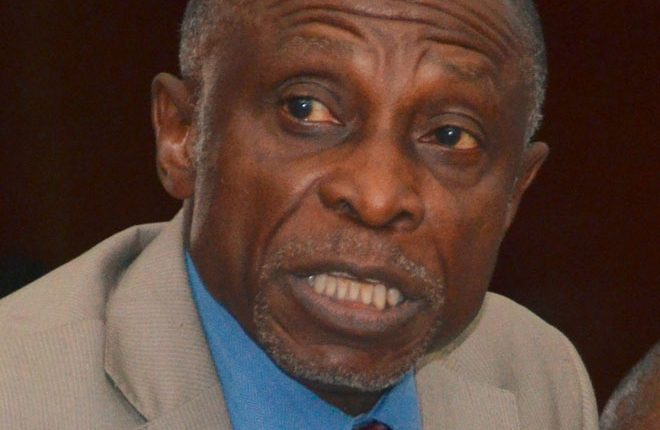Georgetown, Guyana (CMC) — In an attempt to settle the border dispute with Venezuela, the government of Guyana plans to ask the United Nations to intervene in the matter.
Foreign Minister Carl Greenidge in a statement to the National Assembly on Wednesday said the only alternative to settle the controversy with its Spanish speaking neighbour is that of a juridical settlement that the 1899 Arbitral Tribunal Award of the border with Venezuela is final.
“A juridical settlement in respect of Venezuela’s contention that this award is null and void appears to be the best if not the only way now open to us,” he told the House.
He said Guyana has stepped up its diplomatic offensive to the international community including special approaches to other Caribbean and Commonwealth member states “from whom we have consistently received support in the past for our just cause.”
Other steps are being taken to ensure that Guyana’s sovereignty and territorial integrity are not compromised in any way and that our sovereign right to develop this great country is free from threats and economic aggression remains untrammeled.”
He said the Decree has served to widen even further the gap between the neighbouring South American countries. The purported annexation of the waters off Essequibo now takes in the oil-rich Stabroek Block where American oil giant, Exxon Mobil, last month found a “significant” reserve of high quality crude oil.
Greenidge said the government would be directing its “full attention” to legal proceedings to settle the matter peacefully. “A definitive solution that will put to rest Venezuela’s contention of nullity has to be found.”
He stressed that the 1966 Geneva Agreement between Venezuela, Britain and Guyana provides for various mechanisms to resolve the controversy but one of them- the United Nations Secretary General’s Good Officer Process- has not yielded any progress for the past 25 years.
He said Guyana would now have to seek relief through one of the options in Article 33 of the United Nations Charter. Those options include arbitration and judicial settlement.
The Foreign Minister said President Nicolas Maduro’s Gazetted Decree 1787 on May 26, 2015 that includes all the Atlantic waters off the Essequibo Coast now means that Guyana’s must hasten its quest for a final solution. “Venezuela has by its recent decree virtually given notice that it intends to continue increasing the pressure on Guyana and to weaken its resistance to its illegal claim.”
Greenidge said the Decree purportedly mandates and authorizes the Venezuelan Navy to secure the area and bars anyone from exploiting it without its permission.
“This Decree is a baseless and shameless attempt at usurping Guyana’s territory is also intended to deny Guyana her legitimate right to continue the pursuit of existing development initiatives,” he said, in apparent reference to Exxon-Mobil’s oil-find.
“It is also intended to impact negatively in other pending and future development initiatives in that portion of Guyana’s legitimate maritime space that falls within the area circumscribed by the Decree,” he added.
Against the background of a pattern of military, paramilitary and economic aggression, he said Venezuela has refused to come to begin agreed negotiations on maritime delimitation.
For decades, Venezuela has occupied the Guyana side of Ankoko Island, objected to the development of hydro power stations in Essequibo and the exploration of oil offshore and onshore.

